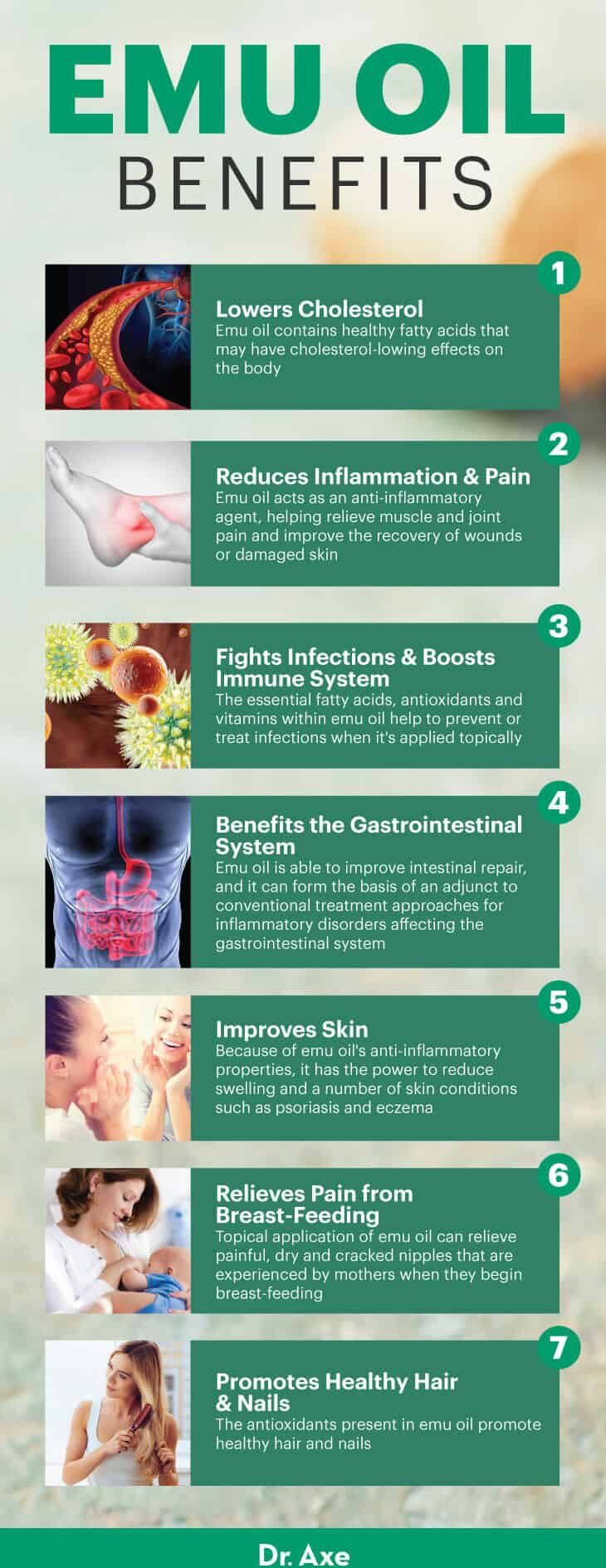This Dr. Axe content is medically reviewed or fact checked to ensure factually accurate information.
With strict editorial sourcing guidelines, we only link to academic research institutions, reputable media sites and, when research is available, medically peer-reviewed studies. Note that the numbers in parentheses (1, 2, etc.) are clickable links to these studies.
The information in our articles is NOT intended to replace a one-on-one relationship with a qualified health care professional and is not intended as medical advice.
This article is based on scientific evidence, written by experts and fact checked by our trained editorial staff. Note that the numbers in parentheses (1, 2, etc.) are clickable links to medically peer-reviewed studies.
Our team includes licensed nutritionists and dietitians, certified health education specialists, as well as certified strength and conditioning specialists, personal trainers and corrective exercise specialists. Our team aims to be not only thorough with its research, but also objective and unbiased.
The information in our articles is NOT intended to replace a one-on-one relationship with a qualified health care professional and is not intended as medical advice.
Emu Oil Benefits Skin and Helps Treat Skin Conditions Naturally
January 2, 2024

We’ve heard about the powerful therapeutic properties of fish oil before, but did you know that oils derived from birds can also be beneficial? Emu oil is made up of essential fatty acids, like omega-3s, and it naturally helps reduce inflammation and treat skin conditions, among many other incredible benefits.
In fact, a 2012 study conducted in Australia found that emu oil, when administered orally and topically, possesses significant anti-inflammatory properties. Researchers indicated that it’s able to treat inflammatory disorders affecting the gastrointestinal system.
Further research suggests that emu oil is a powerful tool that can be used to treat many conditions that result from inflammation.
What Is Emu Oil?
Emu oil is taken from the fat of the emu, a flightless bird native to Australia that resembles an ostrich, and predominantly comprises fatty acids. Thousands of years ago, the aborigines of Australia, known to be one of the oldest groups of people on Earth, were the first to use emu fat and oil to treat skin infections.
Since then, emu oil has become so popular that doctors recommend it for the treatment of burns and other skin conditions. When used topically and orally, emu oil is known to possess anti-inflammatory properties that can help treat a number of health issues, including muscle pain, migraines and skin conditions.
Health Benefits
1. Helps Lower Cholesterol
Emu oil contains healthy fatty acids that may have cholesterol-lowering effects on the body. Although the research on emu oil specifically is limited, there is clear evidence that essential fatty acids, like those that come from fish oil, have cholesterol-lowing effects.
A study conducted by the Nutrition and Metabolism Research Group in Canada found that omega-3 fatty acid supplementation reduced plasma triglyceride levels after a three-month period without affecting LDL or HDL cholesterol levels. The linoleic acid found in emu oil is known to help with fat loss, which can also have a positive effect on cholesterol levels.
An animal study conducted on hamsters found similar results. Cholesterol levels in hamsters given emu oil or olive oil were lower than in hamsters fed coconut oil.
2. Reduces Inflammation and Pain
Emu oil acts as an anti-inflammatory agent and natural painkiller, helping relieve muscle and joint pain and improve the recovery of wounds or damaged skin. A study published in Inflammopharmacology found that when used topically, emu oil’s anti-inflammatory properties were just as effective as oral administration of ibuprofen in rats.
Thanks in part to its polyunsaturated fatty acids and antioxidants, this oil is has been shown to help combat inflammation. Because it has the ability to decrease swelling and minimize aching, it can be used to relieve the symptoms of carpal tunnel, arthritis and more.
3. Fights Infections and Boosts Immune System
The essential fatty acids, antioxidants and vitamins within emu oil help prevent or treat infections when it’s applied topically. It also has bacteriostatic properties, giving it the ability to stop bacteria from reproducing.
Research shows that the linolenic acid found in emu oil has the power to treat antibiotic-resistant infections, such as H. pylori, an infection that’s responsible for various gastric diseases, including gastritis, peptic ulcers and gastric malignancy.
4. Benefits the Gastrointestinal System
The 2012 study conducted in Australia mentioned previously tested the therapeutic activity of emu oil on the gastrointestinal tracts of mice. Researchers found that it demonstrated partial protection against chemotherapy-induced mucositis, the painful inflammation and ulceration of the mucous membranes lining the digestive tract.
Mucositis usually occurs as an adverse effect of chemotherapy and radiotherapy treatment for cancer. Based on these findings, researchers concluded that emu oil is able to improve intestinal repair, and it can form the basis of an adjunct to conventional treatment approaches for inflammatory disorders affecting the gastrointestinal system.
5. Improves Skin
Emu oil absorbs into the skin easily because it contains fat lipids that are similar to those found in the top layer of the skin. The oil is also able to break through the barrier of the skin and penetrate deep within the surface, allowing it to act as a powerful moisturizer. It can be used to smooth rough elbows, knees and heels; soften the hands; and reduce itching and flakiness from dry skin.
Because of emu oil’s anti-inflammatory properties, it has the power to reduce swelling and a number of skin conditions, such as psoriasis and eczema. It also stimulates skin cell regeneration and circulation, so it can help those suffering from thinning skin or bed sores — plus it helps to reduce the appearance of scars, burns, stretch marks, wrinkles and sun damage.
Researchers in China investigated the effects of topical application of emu oil on wound healing in scalded rats. They found that it has anti-inflammatory activity, possibly in association with decreased levels of the pro-inflammatory cytokines in the tissues, and it can promote wound healing by inhibiting local inflammation. After applying emu oil, the swelling and effusion of the burn were alleviated, and there was no evidence of wound infection or adverse effects.
6. Relieves Pain from Breastfeeding
Topical application of emu oil can relieve painful, dry and cracked nipples that are experienced by mothers when they begin breastfeeding. A 2016 study published in the Journal of Evidence-Based Complementary and Alternative Medicine found that applying emu oil to the areola is effective in soothing damage caused by breastfeeding.
In the study, 70 at-term breastfeeding mothers used emu oil-based cream on the areola, and the treatment was effective in improving hydration of the area while it did not affect skin pH, temperature or elasticity.
7. Promotes Healthy Hair and Nails
The antioxidants present in emu oil promote healthy hair and nails. The vitamin E helps reverse environmental damage to hair and promote circulation to the scalp. Emu oil can be used for the hair to add moisture and promote hair growth.
Experimental animal studies were performed to evaluate hair growth potential of emu oil, and researchers found that emu oil treatment exhibited a significant potency in promoting hair growth in comparison with a marketed 5 percent minioxidil solution. It’s also beneficial for the nails by moisturizing the cuticles and reducing inflammation that may be caused by a condition like toenail fungus.
8. Works as a Bug Repellent
Research confirms that emu oil is effective in repelling insects. It’s believed the terpenes present in the oil are responsible for these effects.

Composition
Emu oil comes from the emu, or dromaius novaehollandiae, the second-largest living bird by height, after the ostrich. Much like the ostrich, emus have long necks and legs, and they can reach up to 6.2 feet in height.
Emu oil is derived from the adipose tissue of the bird. Depending on the method of extraction and the diet of the emu, the oil can be anywhere from an off-white, creamy texture to a thin, yellow liquid.
The therapeutic qualities of emu oil come from its unsaturated fatty acids, making up about 70 percent of its composition. Studies suggest that the combination of omega-9, 6 and 3 fatty acids bring about emu oil’s anti-inflammatory and other beneficial actions. It also contains variable levels of several compounds with antioxidant properties.
Its benefits lie in the high levels of essential fatty acids and vitamins, including:
- Oleic Acid — Oleic acid is a monounsaturated, omega-9 fatty acid. It’s a common fat in the human diet that’s been associated with decreased LDL cholesterol and possibly increased HDL cholesterol. In emu oil, the oleic acid helps transport the bioactive compounds into the skin, allowing the oil to absorb quickly when it’s applied topically.
- Linoleic Acid — Linoleic acid is a polyunsaturated, omega-6 fatty acid. Linoleic acid helps boost skin health by reducing the appearance of sun spots or aging when it’s applied topically. Studies have shown that linoleic acid helps lighten ultraviolet-induced hyperpigmentation of the skin by inhibiting melanin production. (9)
- Linolenic Acid — Linolenic acid is an omega-3 fatty acid that helps reduce inflammation, and it’s commonly used to help prevent chronic diseases, such as heart disease and arthritis. When consumed, omega-3 fatty acids boost brain health and aid growth and development.
Emu oil is also made up of eicosanoids, which are signaling molecules that exert complex control over many bodily systems. Eicosanoids act as messengers in the central nervous system, and they control growth during and after physical activity, along with inflammation as a result of exposure to toxins or pathogens. Eicosanoids are formed primarily from omega-6 and omega-3 fatty acids, which can be found in the tissue of mammals, like the emu.
The oil contains vitamins E and A, both contributing to its ability to heal the skin and reduce inflammation. Vitamin E serves as a natural anti-aging agent. It strengthens the capillary walls in the skin and helps improve moisture and elasticity.
Vitamin E also helps balance cholesterol and fight free radical damage.
Vitamin A is a powerful antioxidant that plays a critical role in maintaining healthy skin and reducing inflammation. Vitamin A also boosts the immune system, helping fight conditions, like the common cold, cough or flu.
Use with Animals
Some veterinarians use emu oil on animals to soothe their irritated skin, help with wound healing and reduce pain. It can be applied topically to the paws of an animal, for example, to reduce joint pain and protect the area from infection. It can even be used to ease the pain of arthritis and flea bites naturally.
A study published in the American Journal of Veterinary Research evaluated the effects of emu oil on auricular (ear) inflammation in mice. Compared with the controls, the magnitude of swelling was significantly reduced after only six hours of treatment with the oil. This study suggests that emu oil is a safe, inexpensive and natural way to treat inflammatory conditions in animals.
Products
Emu oil can be purchased online or at a health food store. When shopping for it, make sure to purchase it from a reputable company because it’s sometimes mixed with other less expensive oils.
Look for a bottle that guarantees that it’s 100 percent pure-grade oil.
Because of emu oil’s popularity, some companies have begun to breed emus in inhumane conditions in order to turn over a quick profit. Look for emu oil that’s derived from emus that were raised exclusively on Australian soils and were not fed GMO feed, antibiotics, growth hormones, vaccinations or pesticides.
Use pure emu oil topically by rubbing it directly on the area of concern. This helps reduce inflammation and pain, plus soothes irritated or dry skin. It can also be used as a massage oil, which can be especially helpful for people with arthritis or itching, flaky skin.
Blue emu is a popular type that combines emu oil with glucosamine and MSM (methylsulfonylmethane) with aloe vera. Based on anecdotal evidence, blue emu is generally effective as a way to treat aches and pains, and it’s less expensive than prescription ointments.
Emu oil can also be used internally to reduce cholesterol levels or as a means of dietary fatty acids. It can be found in gel capsules, but be sure to purchase internal supplements from a reputable company that guarantees that the oil is pure-grade.
Risks and Side Effects
Emu oil is known to be hypoallergenic because its biological makeup is very similar to that of human skin. It’s so popular because it does not clog the pores or irritate the skin.
If you have sensitive skin, apply only a small amount of it first to be sure that your skin won’t have an allergic reaction. Emu oil is known to be safe for internal use as well, as it contains beneficial essential fatty acids and vitamins. Studies show that adverse effects are uncommon.
Final Thoughts
- Emu oil is made up of 70 percent essential fatty acids, a combination of omega-9, 6 and 3s. These properties give it its ability to reduce inflammation, relieve muscle and joint pain, moisturize the skin, and treat skin conditions. It also contains antioxidants and vitamins, such as vitamins E and A.
- Because the biological compounds of emu oil are similar to those of human skin, it breaks through the barriers of the skin and penetrates deep within the surface. This is why it can treat skin conditions, such as psoriasis and eczema — plus it can relieve dry, flaky and itchy skin. Research also shows that it can thicken hair and treat dry, itchy scalp.
- Emu oil can be used topically and internally. When purchasing it, look for 100 percent pure-grade oil, especially if you’re using it internally. Blue emu cream is a popular product containing emu oil, as well as glucosamine and MSM with aloe vera.










